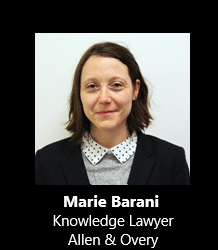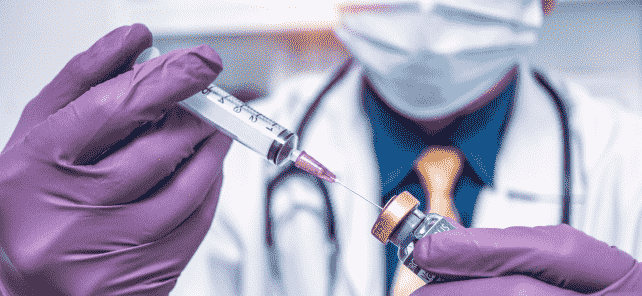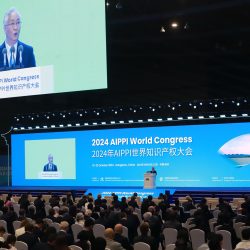 On 17 June 2022, World Trade Organization members agreed on a patent waiver for developing countries (the Eligible Members)[1]. The patent waiver allows Eligible Members to waive patent rights without the patent-holder’s consent. It applies to patents needed for the production and supply of Covid-19 vaccines, as well as the ingredients and processes to manufacture Covid-19 vaccines. The patent waver will be based on legal, administrative, executive or judicial instruments enacted by Eligible Members who wish to benefit from it, independently from any existing compulsory licensing scheme. It may serve beyond the supply of domestic markets, and cover re-exportation for humanitarian and non-profit purposes. It may also be extended in December 2022 to cover Covid-19 diagnostics and therapeutics patents.
On 17 June 2022, World Trade Organization members agreed on a patent waiver for developing countries (the Eligible Members)[1]. The patent waiver allows Eligible Members to waive patent rights without the patent-holder’s consent. It applies to patents needed for the production and supply of Covid-19 vaccines, as well as the ingredients and processes to manufacture Covid-19 vaccines. The patent waver will be based on legal, administrative, executive or judicial instruments enacted by Eligible Members who wish to benefit from it, independently from any existing compulsory licensing scheme. It may serve beyond the supply of domestic markets, and cover re-exportation for humanitarian and non-profit purposes. It may also be extended in December 2022 to cover Covid-19 diagnostics and therapeutics patents.
Although the waiver does not constitute a blank denial of patent rights to patent-holders, and its implementation will depend on the adoption of relevant national instruments, it goes beyond the existing exceptions to patent rights included in Articles 30 and 31 of the TRIPS agreement. In particular, it broadens the scope of the compulsory licensing exception in Article 31 of the TRIPS agreement, which does not require the patent-holder’s authorization in extreme urgency situations. The patent waiver also raises some questions.
First, to what extent will such a waiver effectively allow for the manufacture and supply of Covid-19 vaccines? Indeed, the manufacturing and supply of vaccine requires infrastructure, skills, ingredients, and know-how, beyond just patent rights. A patent waiver will not magically provide these resources if they were already inexistent or hard to obtain.
Second, according to an article published in May 2021 in Nature[2] and the WIPO Patent Landscape Report on Covid-19 related vaccines and therapeutics[3], many SMEs and public institutions hold Covid-19 related patents (201 research institutions and universities compared to 222 companies), which contradicts the assumption that “big pharma” owns all the Covid-19 patents and excludes third parties from equal access to vaccines. So, how do we make sure that the patent waiver is not enforced in a way that penalizes smaller and potentially less resourceful entities, and that may be helpful in a future global emergency crisis? A patent waiver is indeed not necessary for public entities to share their IP or knowledge. While patents are often seen solely as exclusive and negative rights, they are often used as an innovation enabler by public institutions.
Patents are key to Open Innovation initiatives that may materialize through collaborations, consortia, joint initiatives, or simply manufacturing, distribution, supply or licensing agreements. When shared, they support further development and innovation.
Instead of adopting an instrument that has the potential to deprive patent-holders of their rights, initiatives fostering the collaborative use of patents and incentives to build factories in unserved areas could have a more long-lasting potential than a patent waiver.
At the end of May 2022, the Indian Serum Institute was considering opening manufacturing plants in Africa[4]. On 23 June 2022, BioNTech announced that it had reached a new milestone in the creation of a mRNA manufacturing plant in Rwanda[5]
Maybe these types of collaborative initiatives should be fostered rather than a patent waiver. Otherwise, next time we require innovative vaccines or treatments in a very short timeframe, we face the risk that fewer companies may be willing to engage therein. However, it takes longer to collaborate and build manufacturing plants than to sign a patent waiver.
Written by Marie Barani, Knowledge Lawyer at Allen & Overy (LLP) Belgium
[1] See WTO Ministerial Decision on the TRIPS Agreement of 17 June 2022 (WT/MIN(22)/30
[2] See Mario Gaviria & Burcu Kilic, “A network analysis of Covid-19 mRNA vaccine patents”, Nature, 12 May 2021
[3] WIPO, Patent Landscape Report: Covid-19 related vaccines and therapeutics
[4] See Aditya Kalra, “Indian vaccine giant Serum plans Africa plant in global expansion”, Reuters, 24 May 2022
[5] See BioNTech press release of 23 June 2022, “BioNTech Starts Construction of First mRNA Vaccine Manufacturing Facility in Africa”










